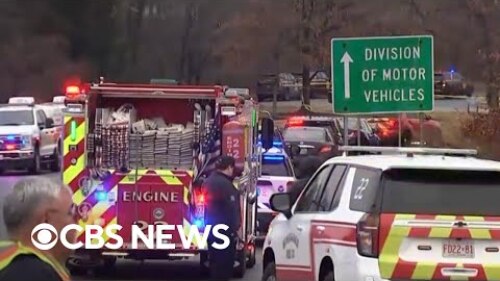An Associated Press investigation found that at least 29 law enforcement recruits have died during basic training in the past decade, with most deaths linked to extreme exertion, dehydration, heatstroke or physical trauma.
Many of the deaths occurred on the first day of training, while others happened later during high-intensity exercises, according to the report. The deaths have increased as police departments recruit a more diverse and older applicant pool to address staffing shortages. More than two-thirds of the reported fatalities have occurred since 2020.
Black recruits accounted for nearly 60% of those who died, with many carrying the sickle cell trait, a genetic condition that can increase the risk of exertion-related injuries, according to the report.
The NCAA and U.S. military screen recruits for the condition, linked to deaths in football and boot camps, according to the report. Exertional deaths among college athletes dropped after NCAA-mandated testing in 2010, while the military’s impact is under review. Recommended precautions include gradual intensity, rest, hydration and quick response to distress.
Some states, like Arkansas, have implemented laws requiring instructors to be trained in heat exhaustion and cardiac arrest symptoms. However, most police academies lack standardized medical screening programs for sickle cell trait or other risk factors, according to the report.
In 2024 alone, at least five recruits died, including incidents related to heatstroke and survival training exercises, according to the report. The lack of national oversight means recruit fatalities are not comprehensively tracked, unlike officer deaths in the line of duty.
“It was just heartbreaking. I’ll never forget it. And I’ll do anything at all to get this message out,” said Sheriff Charmaine McGuffey of Hamilton County, Ohio, who witnessed the 2023 death of 36-year-old Marcus Zeigler after he collapsed during a training run. “We’re talking about life or death.”
Bill Alexander, CEO of the National Law Enforcement Officers Memorial Fund in Washington, said the number of deaths could be reduced but not eliminated due to the demands of policing, which often involve pursuing and arresting combative suspects.
“If you’re training people physically and if you’re training them hard, you’re going to have these very rare medical events,” said Alexander, who previously led an academy in Maryland.
Congress passed a law in 2021 allowing families of recruits who die during training to apply for federal death benefits, but few claims have been processed, according to the report. Experts and law enforcement officials say further reforms are needed to improve recruit safety and prevent future fatalities.







